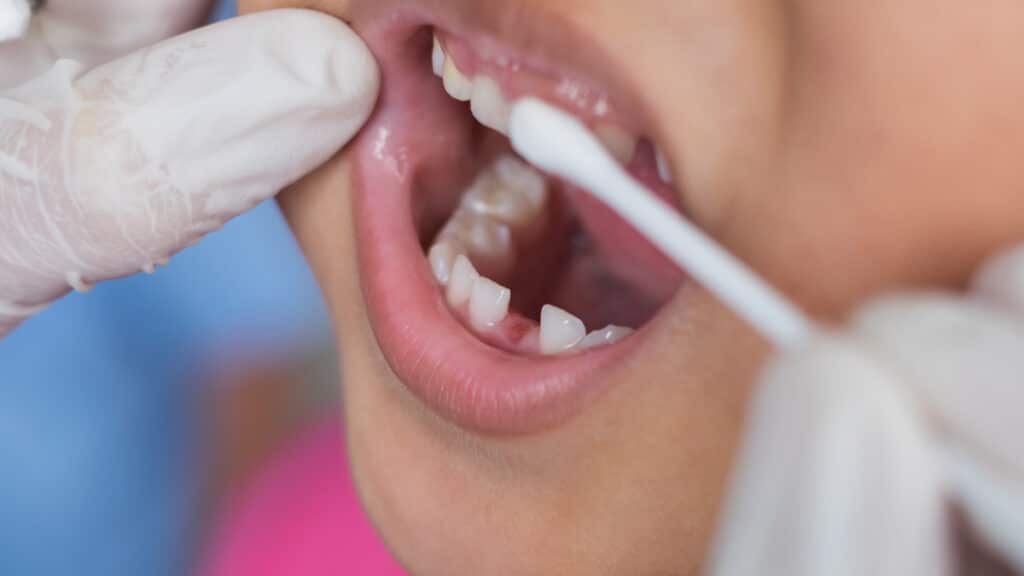What is Fluoride?
Fluoride is a naturally occurring mineral that is found in various sources, including water, soil, rocks, and certain foods. It is also synthetically produced for use in oral health products such as toothpaste, mouthwashes, and professional dental treatments. Fluoride plays a crucial role in dental care and is widely recognized for its ability to prevent tooth decay.
The primary purpose of fluoride is to strengthen tooth enamel, which is the outer protective layer of the teeth. Tooth enamel is constantly exposed to acids produced by bacteria in the mouth and dietary factors. These acids can erode the enamel and lead to tooth decay. Fluoride helps to remineralize and repair the damaged enamel, making it more resistant to acid attacks.
The history of fluoride’s importance in dental care can be traced back to the early 20th century. Researchers noticed that people living in areas with naturally high fluoride levels in their water supply had fewer cavities. This observation led to the discovery of the preventive benefits of fluoride in tooth decay. Since then, fluoride has been widely used in various forms to promote dental health.

Who Is Fluoride For?
Fluoride is for everyone, regardless of age. It is particularly important for children during their tooth development stage, as it helps to strengthen their developing teeth and prevent cavities. However, adults can also benefit from fluoride treatments and products to maintain good oral health and reduce the risk of tooth decay.
Why Is Fluoride Important?
Fluoride is important because it helps prevent tooth decay and cavities. It works by inhibiting the demineralization process of tooth enamel and enhancing the remineralization process. This means that fluoride helps to protect teeth from the harmful effects of acids produced by bacteria, sugars, and acids from food and beverages. It also assists in repairing early-stage tooth decay, preventing it from progressing into more severe dental problems.
How Is Fluoride Treatment Applied?
Fluoride treatment can be applied in different ways. The most common methods include topical application and systemic ingestion:
Topical Fluoride Application: This involves directly applying fluoride to the teeth using fluoride toothpaste, mouth rinses, gels, or foams. These products are readily available over-the-counter and can be used at home as part of regular oral hygiene practices. Professional fluoride treatments may also be applied by dentists during routine dental visits.
Systemic Fluoride Ingestion: This involves the consumption of fluoride through sources such as fluoridated water, dietary supplements, or fluoride tablets prescribed by a dentist. Systemic fluoride gets incorporated into the developing teeth and strengthens them as they grow.
How Often Is Fluoride Treatment Needed?
The frequency of fluoride treatment depends on various factors such as age, oral health status, and the presence of specific risk factors for tooth decay. Generally, regular use of fluoride toothpaste and mouth rinses at home is recommended for daily oral hygiene. Professional fluoride treatments are often provided at dental check-ups, typically every 3, 6, or 12 months, depending on individual needs and the dentist’s recommendation. Dentists assess the oral health of each patient and determine the appropriate frequency of fluoride treatment.
Interested in Learning More about Fluoride?
Dr. Patel and his team at Colonialtown Dental have extensive experience and knowledge regarding fluoride treatment. Colonialtown Dental has been serving Orlando and the surrounding areas for over 28 years. Book online or give us a call at 407-422-3811 today!
Services
Cosmetic Dentistry
General Dentistry
- Crowns
- Extraction
- Fillings
- Gingivitis Treatment
- Periodontal Disease
- Regular Exam & Cleaning
- Root Canals
- Sealants
- Wisdom Teeth
Orthodontics
